
Consider This – KZYX&Z
Home of KZYX.org Radio Program – Listener Call-ins @ (707) 895-2448 during program
Program Information
“Consider This” is a program that aims to provide educational and discerning conversations with notable guests—authors, educators, and other influential people—about topical issues of interest to our listeners. It is my intent that the conversations on the show spark thoughtful dialogue about the issues discussed. The show broadcasts on KZYX, Mendocino County, California Public Broadcasting (90.7-Philo; 91.5-Willits & Ukiah; 88.1-Ft. Bragg; and streaming on the Web at KZYX.org.). The show will also be available for download on this site, usually within 24 hours of the broadcast.
Program Host Bio
My name is Stuart Campbell, and I am the host of “Consider This,” on Mendocino County’s Public Broadcasting station KZYX. I am committed to promoting critical living, by which I mean engaged, discerning and creative living that fulfills life. I am an educator, having taught courses in comparative religion, critical reasoning, introduction to philosophy, ethics, & communication. I currently teach for Santa Rosa Junior College & Mendocino College.
Retirement
I have concluded my final show in February, and will no longer be hosting Consider This. I have deeply appreciated the opportunity to bring many notable authors and distinguished scholars to my listeners in Mendocino County. Rest assured that I won’t be disappearing, and intend to continue working with KZYX in other capacities. I want to express my thanks to all of you who have supported the show by listening and contributing to KZYX over the years.
Dr. Jordan Peterson
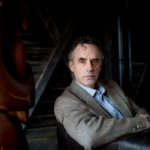
My guest on this program is Jordan Peterson, professor at the University of Toronto, a clinical psychologist, and the author most recently of 12 Rules for Life: An Antidote to Chaos, published just last week. His YouTube channel, on which he has posted his university and public lectures, has over 665,000 subscribers, and approximately 40M views. In his NY Times column of last week, David Brooks cited economist and author Tyler Cowen as arguing that Dr. Peterson is the most influential public intellectual in the Western world right now.
Einstein & Gravity

On this program, my guest is Marcia Bartusiak, Professor of the Practice of the Graduate Program in Science Writing at MIT, and award-winning author of many books. We ‘ll be talking about her most recent, a revised, updated classic Einstein’s Unfinished Symphony: The Story of a Gamble, Two Black Holes, and a New Age of Astronomy, which recounts the search for and discovery of Einstein’s predicted gravitational waves.
How Language Began
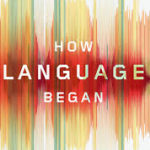
My guest on this program is linguist Daniel Everett, Dean of Arts and Sciences at Bentley University in Waltham, Massachusetts. He is the author of many books, including Don’t Sleep, There Are Snakes; and Language: The Cultural Tool; and his life and work is also the subject of a documentary film, The Grammar of Happiness. I interviewed him last May for his book, Dark Matter of the Mind: The Culturally Articulated Unconscious, and we have him back for his new book, How Language Began: The Story of Humanity’s Greatest Invention. He argues that we are not born with an instinct for language, and that the near seven thousand languages that exist today—the product of one million years of evolution—are the very basis of our own consciousness.
Best Attractions at Disneyland Paris
Disneyland Paris …. Its lands, its alleys, its spirit of yesteryear, its smells, its parades, its characters and above all… its attractions!!! They are all different, and punctuate the days of visitors to the park! But what are the best Disneyland Paris attractions and why? Keep your hands and arms inside the wagon, because here comes the best Disneyland Paris attractions.

Peter pan’s flight at Disneyland Paris
Embark on a pirate ship and thanks to a little pixie dust, fly over London and the imaginary country to relive the story of Peter Pan, Wendy, John, Tinkerbell, Michael and all the lost children. If this attraction is so successful it is certainly because it is the dark ride that is the least scary. Indeed, Pinocchio and Snow White , which are the 2 other dark rides of Disneyland Paris, located next to Peter Pan, are much more focused on the dark aspects of the 2 cartoons: the ugly witch of Snow White, Stromboli and the Pleasure Island for Pinocchio.
The Twilight Zone Tower of Terror
Welcome to the 4th dimension, relive this terrible night in 1939 when 5 people disappeared forever by taking the elevator of the infamous Hollywood Tower hotel. But where have these people gone? They have passed… into the 4th dimension and you will soon join them! The Twilight Zone Tower of Terror is in 6th place in this ranking because it has everything you can love in a Disney attraction: thrills and a very successful theming.
From start to finish, you’ll feel like you’re part of this universe and hopefully you’ll also have a cast member who puts you in that weird, gloomy, and slightly disturbing vibe of the Hollywood Tower Hotel . After a video introduction to put you in the atmosphere of the attraction, you will be placed by a somewhat special butler in an elevator which will take you into the 4th dimension . Spoiler alert, if you’re not a fan of the feeling of falling into the void, this attraction may not be for you.
Hyperspace Mountain
Hyperspace Mountain is perhaps Disneyland Paris’ most famous attraction! Inaugurated in 1995 with a lot of advertising reinforcements for Space Mountain from Earth to the Moon at the time, its latest update (2017) takes us to the depths of the galaxy with the destroyers of Star Wars! An absolute must-do
The Lion King and the Rhythms of the Earth
Launched in 2019 during the Lion King and the Jungle Festival, the show The Lion King and the Rhythms of the Earth has become a permanent feature at Disneyland Park since summer 2021. Performed every day (excluding seasonal breaks) at Frontierland Theater , this show worthy of a Broadway musical will make you relive the highlights of the cult film from which it is inspired!
Ratatouille
Opened in 2014, Ratatouille has become a classic at Walt Disney Studios! You are reduced to the size of Remy! Dive into the kitchens of Skinner’s restaurant but don’t get caught! 3D, special effects and little rats make this adventure a great time to experience with the family
Big Thunder Mountain (“le train de la mine”)
Icon of the park, you will spot this attraction very quickly when you arrive at Disneyland Paris. Indeed, Big Thunder Mountain represents a large rocky mountain inspired by Monument Valley. For the story, the interior of the mountain hides a gold mine, owned by the possessive father (see Phantom Manor), and in which he perished following an earthquake. You will therefore board a mining train, for a roller coaster type course that will take you at full speed through splendid scenery and different visual effects. For the most sensitive, don’t worry, you won’t be upside down: this attraction is intended for the family.
Crush’s Coaster (“Nemo”)
Relive the cartoon “Finding Nemo” through an original merry-go-round. Indeed, this roller coaster has two aspects that are not often seen on this type of attraction. First the minecart: you board a large turtle shell that can rotate freely 360° on its base. This freedom provides a feeling of flexibility and allows you to enjoy the course from different angles. Second originality: without changing vehicles, the attraction is made up of two parts, first a small quiet “scenic route” passing through different scenes from the film, which will be followed by the “roller coaster” part simulating the powerful easterly current -Australian.
The Meaning of Belief

My guest on the next program is philosopher Tim Crane. He is the author of many books, including The Objects of Thought (2013), Aspects of Psychologism (2014). His most recent one is The Meaning of Belief: Religion from an Atheist’s Point of View, in which he takes a markedly different approach from that of the so-called New Atheists, and argues that atheists like himself should attempt to understand religion and-as far as possible–attempt to tolerate it. He is professor of philosophy at Central European University.
The Human Predicament
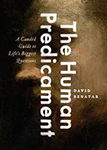
My guest on this program is David Benatar, professor of philosophy at the University of Cape Town, South Africa. His research interests are in moral and social philosophy, and applied ethics. His most recent book is The Human Predicament: A Candid Guide to Life’s Biggest Questions, in which he invites us to take a clear-eyed view of such questions as “Are human lives ultimately meaningless?” “Is our inevitable death bad?” He argues that while our lives can have some meaning, cosmically speaking we are ultimately the insignificant beings we fear we are.
How Emotions Are Made
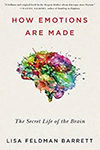
My guest on this program is Lisa Feldman Barrett, University Distinguished Professor of Psychology at Northwestern University, with appointments at Harvard Medical School and Massachusetts General Hospital in psychiatry and radiology. She received a National Institutes of Health Director’s Pioneer Award for her groundbreaking research on emotion in the brain. She is the author most recently of How Emotions Are Made: The Secret Life of the Brain, in which she disputes the prevailing view that emotion and reason are at odds. She argues that emotion is not hardwired, but is constructed by our brains and our bodies as we go along. In addition, emotions are not cross-culturally universal-e.g. fear does not live in the amygdala-and there are no body patterns or changes, or patterns of brain activity that specifically and solely identify any one emotion. Her work in this area has been termed a revolution on par with the discovery of relativity in physics, and natural selection in biology. The book reveals the latest research and intriguing practical applications of the new science of emotion, mind, and brain.
The Unhealthy Politics of Medicine

My guest on this program is Eric Patashnik, Julis-Rabinowitz Professor of Public Policy and Political Science at Brown University. He is one of three co-authors of Unhealthy Politics: The Battle over Evidence-Based Medicine, to be published next Wednesday, October 4th. The authors argue that many common medical treatments in the U.S. are not based on sound science, and shed light on why the government’s response to that troubling situation has been so inadequate, and why efforts to improve the evidence base of U.S. medicine continue to cause so much political controversy and public trepidation.
Doughnut Economics

My guest on this program is renegade economist Kate Raworth, author of Doughnut Economics: 7 Ways to Think Like a 21st Century Economist. She is senior visiting research associate and advisory board member at Oxford University’s Environmental Change Institute, and educator in Oxford’s masters program for Environmental Change and Management. In addition, she is senior research associate of the Cambridge Institute for Sustainability Leadership and a member of the Club of Rome, a global think tank focusing on international issues. Her work has appeared in the Financial Times, The Wall Street Journal, New Statesman, CNN, Al-Jazeera and numerous academic journals. Her internationally acclaimed idea of Doughnut Economics re-frames and re-envisions economic thinking in service to life.
Climate Change: Saving Our Planet
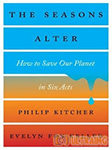
My guest on this program is Columbia University philosophy professor Philip Kitcher. He is the author of numerous books, including Life After Faith: The Case for Secular Humanism and Philosophy of Science: A New Introduction. Most recently, he and is co-author, Evelyn Fox Keller, have written The Seasons Alter: How to Save Our Planet in Six Acts, in which they present the realities of global warming in the most human terms—everyday conversation—showing us how to convince skeptics why we need to act now.
The Story of American Utopianism
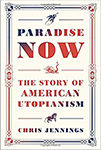
My guest on this program is writer Chris Jennings, author of Paradise Now: The Story of American Utopianism, which tells the story of five interrelated utopian movements following the Enlightenment, revealing their relevance to both their time and our own.
The Fulfillment of Human Life
This was an archive re-broadcast of a program that originally aired on August 31, 2012.
My guest on this edition of Consider This is Kenneth Anbender, Ph.D. Dr. Anbender founded Contegrity in 1992 with Gail Cantor and he specializes in the design of programs that orient people to the place of communication, development, and accomplishment in building a fulfilling life. His work is both transformative and developmental in nature. He holds a Ph.D. in Clinical Psychology (1975) from Adelphi University Institute of Advanced Psychological Studies. Since that time, he has been a trainer, curriculum designer and business consultant who has personally developed over 100,000 people in public programs. His long-term interest is to build vital development communities that have a culture of communication and leadership sufficient to foster sustainable accomplishment and deep satisfaction with life. Over the years, Ken has custom-designed hundreds of powerful and effective programs for corporations, non-profit organizations, and government entities. He has also developed others to be able to successfully lead these programs and the organizations that benefit from them. He has offered work that integrates psychology, spirituality, enlightenment, communication, organizational development, and community building. Ken is the designer of the rigorous body of knowledge that is the foundation of the Contegrity Approach. He has been able to share his insight into the fundamental nature of life in a way that alters the way people engage with and fulfill life. His passionate investigation since 1961 has been into the question, “What integrates and fulfills a human life?”
Moral Failure & Moral Dilemmas
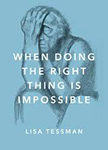
My guest on this program is Lisa Tessman, professor of philosophy at Binghampton University. She teaches and does research in ethics, moral psychology, feminist philosophy, and related areas. Her work focuses on understanding how real human beings construct morality and experience moral demands, especially under difficult conditions. She is the author of Moral Failure: On the Impossible Demands of Morality, and most recently When Doing the Right Thing is Impossible, in which she provides examples, both real and fictional, of situations that will make us wonder whether we can be required to do the impossible, and how and why human beings have constructed moral requirements to be binding even when they are impossible to fulfill.
The Knowledge Illusion
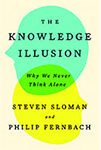
My guest on this program is professor of cognitive, linguistic, and psychological sciences at Brown University, Steven Sloman. He is the editor in chief of the journal Cognition, and his recent book is The Knowledge Illusion: Why We Never Think Alone. In this book, he and his co-author Philip Fernbach, argue that intelligence and knowledge are fundamentally communal in nature, and despite how well we might be individually educated, none of us is as smart as we think we are.
Slow Philosophy

My guest on this program is Michelle Boulous Walker, Senior Lecturer in Philosophy at the University of Queensland, Australia. Dr. Walker’s research interests span the fields of European philosophy, aesthetics, ethics, and feminist philosophy. Her teaching interests in philosophy include intersections with politics, film, and literature. Her most recent book is Slow Philosophy: Reading against the Institution, in which she argues that philosophy involves the patient work of thought; in this it resembles the work of art, which invites and implores us to take our time and to engage with the world. At its best, philosophy teaches us to read slowly; in fact, philosophy is the art of reading slowly – and this inevitably clashes with many of our current institutional practices and demands.
References from the book & mentioned in the interview
- Adorno, T. W. (2000). The Adorno Reader. (B. O’Connor, Ed.) Oxford: Blackwell.
- Beauvoir, S. d. (2004). Eye for an Eye. In M. A. Simons (Ed.), Simone de Beauvoir: Philosophical Writings (K. Arp, Trans., pp. 245-60). Urbana: University of Illinois Press.
- Costa Lima, L. ([1993] 1996). The Limits of Voice: Montaigne, Schlegel, Kafka. Stanford: Stanford University Press.
- Critchley, S. (1989). The Chiasmas: Levinas, Derrida and the Ethical Demand for Deconstruction. Textual Practice 3 (1), 91-106.
- Gumbrecht, H. U. (2003). The Powers of Philology: Dynamics of Textual Scholarship. Urbana: University of Illinois Press.
- Hadot, P. (1995). Philosophy as a Way of Life: Spiritual Exercises from Socrates to Foucault. (M. Chase, Trans.) Oxford: Blackwell Publishing.
- Heidegger, M. (1966). Discourse on Thinking. New York: Harper & Row.
- Irigaray, L. (1993). An Ethics of Sexual Difference. (C. a. Burke, Trans.) Ithaca: Cornell University Press.
- Le Dœuff, M. (1989). The Philosophical Imaginary. (C. Gordon, Trans.) Stanford: Stanford University Press.
- Levinas, E. (1989). The Levinas Reader. (S. Hand, Ed.) Oxford: Basil Blackwell.
- Monk, R. (2005). How to Read Wittgenstein. New York and London: W.W. Norton & Co.
Learning to Learn

My guest on this program is best-selling author Ulrich Boser, senior fellow at the Center for American Progress. Before the Center, he was a contributing editor for U.S. News & World Report. His work has appeared in The New York Times, The Wall Street Journal, and The Washington Post. His recent book is Learn Better: Mastering the Skills for Success in Life, Business, and School, or, How to Become an Expert in Just About Anything, in which he shows that how we learn can matter just as much as what we learn.
Mind & Human Nature

My guest on this program is Daniel Everett, Dean of Arts and Sciences at Bentley University in Waltham, Massachusetts. He is the author of many books, including Don’t Sleep, There Are Snakes; Language: The Cultural Tool; and Linguistic Fieldwork: A Student Guide. His life and work is also the subject of a documentary film, The Grammar of Happiness. His most recent book is Dark Matter of the Mind: The Culturally Articulated Unconscious, in which he argues that human nature as normally conceived does not exist. Flying in the face of major trends in evolutionary psychology and related fields, he offers a provocative and compelling argument that the only thing humans are hardwired for is freedom: freedom from evolutionary instinct and freedom to adapt to a variety of environmental and cultural contexts.
Dan’s next book:
How Language Began: The Story of Humanity’s Greatest Invention (To be released November 7, 2017)
Dan Everett’s definition of culture:
“Culture is the abstract network shaping and connecting social roles, hierarchically structured knowledge domains, and ranked values. Culture is dynamic, shifting, reinterpreted moment by moment. Culture is found only in the bodies (the brain is part of the body) and behaviors of its members. Culture permeates the individual, the community, behaviors, and thinking” (66).
Memory and The Self

This program features University of Miami philosopher Mark Rowlands. He is the author of eighteen books, and over a hundred journal articles, chapters and reviews, and his work has been translated into more than twenty languages. His memoir, The Philosopher and the Wolf, became an international bestseller. His most recent book is Memory and the Self: Phenomenology, Science and Autobiography, in which he explores the role of memory in maintaining a sense of personal identity over time.
A Slave History

My guest on this program is Erica Armstrong Dunbar, Blue and Gold Distinguished Professor of Black Studies and History at the University of Delaware. She has been the recipient of Ford, Mellon, and Social Science Research Council fellowships, and is an Organization of American Historians Distinguished Lecturer. She is the author most recently of Never Caught: The Washington’s Relentless Pursuit of their Runaway Slave, Ona Judge, in which she chronicles the story of Martha Washington’s chief attendant who fled to freedom, and George Washington’s determination to recapture his property by whatever means necessary.
Anger and Forgiveness

My guest on this program is Martha Nussbaum, Ernst Freund Distinguished Professor of Law and Ethics, appointed in the Law School and the Philosophy Department at the University of Chicago. She is the author of many books, and was recently named the 2017 Jefferson Lecturer in the Humanities, the highest honor the federal government bestows for distinguished intellectual achievement in the humanities. Her most recent book is Anger and Forgiveness: Resentment, Generosity, Justice, in which she analyzes the roots of both anger, finding it conceptually confused and normatively pernicious, and forgiveness, as potentially the best way to respond to injury, shedding new light on both.
Universal Basic Income
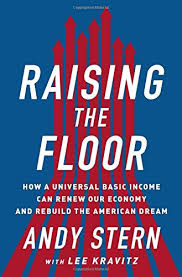
My guest on this program is Andy Stern former head of the nation’s most influential and fastest-growing union, the Service Employees International Union (SEIU), and author of Raising the Floor: How a Universal Basic Income Can Renew Our Economy and Rebuild the American Dream. He argues that a basic income can create a floor high enough to end poverty, and respond to how technological disruption is replacing more and more jobs in this unprecedented economic climate.
Philosophy on the Right
My guest on this program is Sir Roger Scruton, a writer (who has published over 40 books), conservative philosopher at the University of Buchingham, and a Fellow of the British Academy, a Fellow of the Royal Society of Literature, and a Senior Fellow at the Ethics and Public Policy Center in Washington D.C. We’ll be talking about his recent book, Fools, Frauds and Firebrands: Thinkers of the New Left, in which he examines the fact of a preponderance of humanities academics who are on the left, and challenges the arguments they make for their authority. We’ll also be considering some of the themes in Confessions of a Heretic: Selected Essays, which is due out in America on March 28th.
Utopia Is Creepy
My guest on this program is Nicholas Carr, author of The Shallows, a Pulitzer Prize finalist, and the Glass Cage, among other books. Former executive editor of the Harvard Business Review, he has written for The Atlantic, the New York Times, and Wired. His most recent book is Utopia is Creepy and Other Provocations, which gathers a decade’s worth of posts from his blog, Rough Type, as well as his seminal essays. It offers an alternative history of the digital age, chronicling its roller-coaster crazes and crashes, its blind triumphs, and its unintended consequences.
As a follow up to this on-air conversation, Mark Zuckerberg made an announcement the day before. Here are links to an NPR story about it, Nicholas Carr’s Rough Type blog post response, and the original text of Zuckerberg’s announcement:
Facebook wants Great Power, But What About Responsibility?
Zuckerberg’s World by Nicholas Carr
Building Global Community by Mark Zuckerberg
The War on Science
My guest on this program is Shawn Otto, author of The War On Science: Who’s Waging It, Why It Matters, What We Can Do About It. He investigates the historical, social, philosophical, political, and emotional reasons why the evidence-based politics that gave birth to democracy are now in decline and authoritarian politics are once again on the rise on both left and right—and he provides some compelling solutions to bring us to our collective senses, before it’s too late.
A Paradigm Shift in Education
Larry Geni (pronounced JEE-nee) is a career-long, passionate educator and founder of Geni Consulting, a firm dedicated to transforming classrooms into dynamic communities of self-directed learners. In his more than 25 years as a high school science teacher, he developed a unique approach to education that teaches students to take ownership of the learning process and creates a classroom culture grounded in the personal growth and academic success for every student. His two books on this are available for free on his website.
When Robots Rule the Earth
My guest on this program is Robin Hanson, associate professor of economics at George Mason University, and a research associate at the Future of Humanity Institute of Oxford University. His academic training is in physics, philosophy, and social science, and he has worked for years in artificial intelligence at Lockheed and NASA. His recent book is The Age of Em: Work, Love, and Life when Robots Rule the Earth, in which he provides a thought experiment about our technological future when brain emulations, or “Ems,” proliferate, perhaps a hundred years from now.
What Is the Mind?
My returning guest on this program is noted neuropsychiatrist and New York Times best-selling author Dr. Daniel Siegel. His new book is Mind: A Journey to the Heart of Being Human, in which he offers a definition of mind that illuminates how, what, when, where, and even the why of who we are, of what mind is, and what the mind’s self has the potential to become.
The Wisdom of Frugality & Simple Living
My guest on this program is Professor Emrys Westacott, author most recently of The Wisdom of Frugality: Why Less Is More—More or Less. The book examines why, for more than two millennia, so many philosophers and people with a reputation for wisdom have been advocating frugality and simple living as the key to a good life. They have been mostly ignored, but he argues that in a world facing environmental crisis, it may finally be time to listen to the advocates of a simpler way of life.